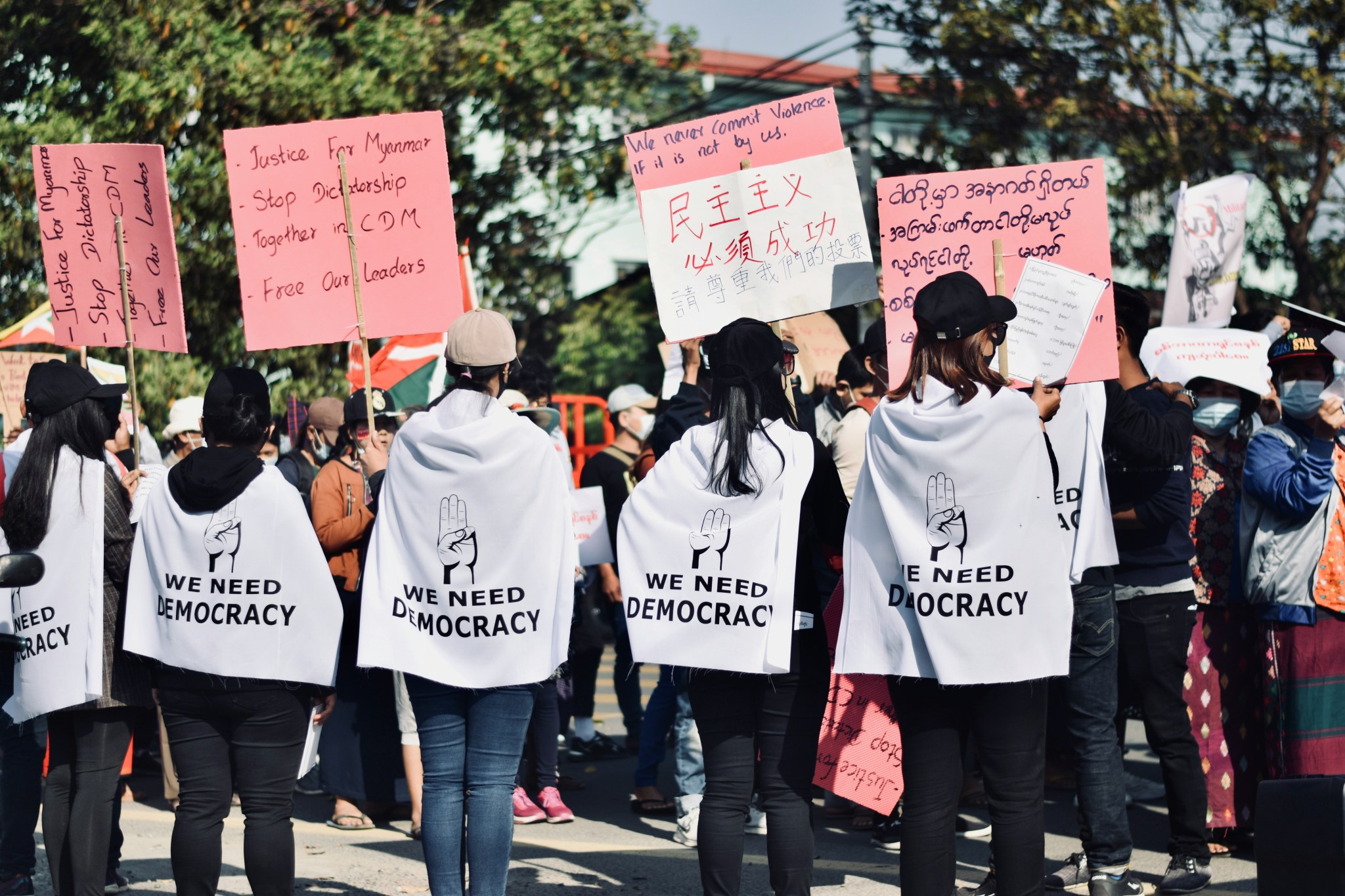Beyond Combat: Shaping Burma’s Future Through Political Dialogue and Democracy

In late 2023, Burma witnessed a dramatic shift in its ongoing conflict, with pro-democracy forces making significant military gains against the weakened junta yet facing the challenge of establishing effective governance and political strategy in captured territories. The pro-democracy movement’s success on the battlefield underscores the need to transition to a system rooted in democratic values and accountable governance, necessitating political dialogue and consensus among diverse groups including the National Unity Government (NUG) and the various ethnic resistance organizations (ERO) active in the resistance movement. International support, particularly from the United States, can play a pivotal role in facilitating this transition and strengthening democratic institutions in Burma.
A Year of Unprecedented Conflict
In the final quarter of 2023, Burma experienced a dramatic escalation in armed conflicts, notably with the Three Brotherhood Alliance (TBA) and allied People’s Defense Forces (PDFs) capturing over 21 towns and 400 military bases in Shan State under ‘Operation 1027.’ This operation expanded into northern Rakhine State and southern Chin State, overwhelming junta forces, who faced high desertion rates, mass surrender, and recruitment crises, and resorted to releasing prisoners for frontline duty. The military junta’s weakened state, compounded by economic struggles and loss of public support, rendered their continued combat efforts increasingly unviable. Consequently, the junta has reportedly lost control over 43% of the country, marking a significant turning point in the Spring Revolution. Despite these military gains, pro-democracy groups in Burma still face the challenge of developing a comprehensive political strategy.
Beyond Military Might: The Need for Political Consensus
While battlefield victories are significant, they alone cannot sustain Burma’s pro-democratic revolution. A shift from military tactics to a system embracing human rights, justice, and democratic principles is crucial. Pro-democracy actors need a well-rounded political strategy, going beyond armed resistance to foster a platform where diverse groups can engage in open, constructive political dialogue.
As revolutionary forces gained control of certain areas, they faced governance challenges, notably the lack of political consensus among pro-democracy resistance groups, sparking conflicts over power, resources, and territory. This highlighted the need for a politically accountable system capable of managing disputes. A critical aspect of this challenge lies in the entrenched societal view in Burma that equates power with violence, complicating efforts to resolve disagreements peacefully through dialogue and compromise. The core issue, therefore, lies not in the disagreements but in the absence of effective resolution mechanisms, crucial for a unified, effective revolutionary movement.
The rise of local administrative bodies in areas like Sagaing, Chin, Shan, and Karenni following the collapse of prior administrations has introduced complex challenges. These entities, each grappling with unique local issues, lack expertise in democratic governance and administration. Addressing these challenges requires incorporating skilled administrators and enhancing their grasp of administrative law and financial reforms to curb corruption and fund misappropriation. Strengthening these facets is vital for establishing their credibility and effectively delivering services and justice locally.
A Call to Action
The U.S. and international community must actively support Burma’s journey towards democracy, extending beyond mere observation and statements of support to facilitating meaningful dialogue among the NUG, EROs, and other pro-democratic groups in country, as well as Burma’s regional neighbors. While the U.S. is already providing technical support and resources, there is a critical need for further involvement, particularly in fostering a platform for inclusive political dialogue among pro-democracy actors. This initiative is vital for Burma’s reconstruction, considering the diverse political dynamics and aspirations of its people. Ultimately, the future of Burma hinges on political solutions, underscoring the need for a concerted effort toward sustainable peace and democracy.
Top